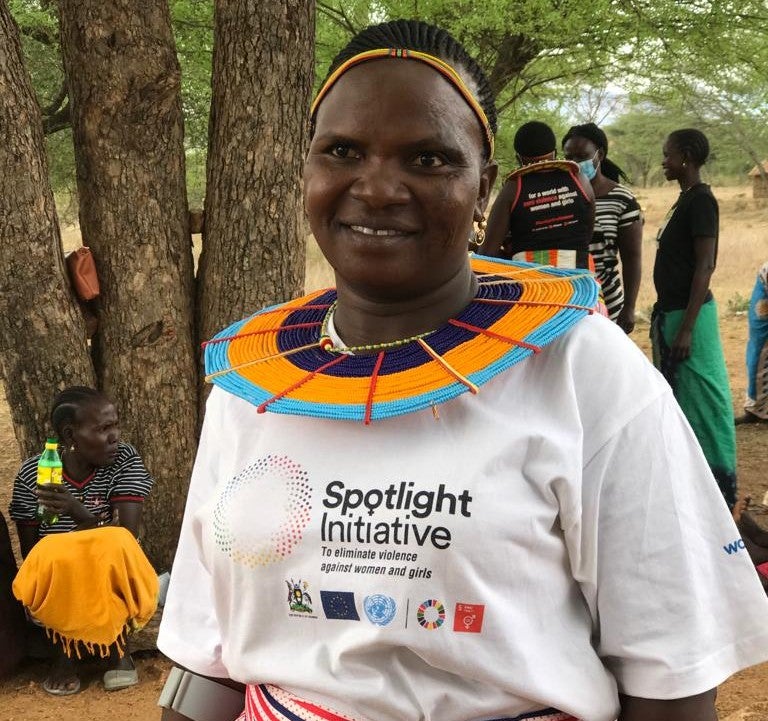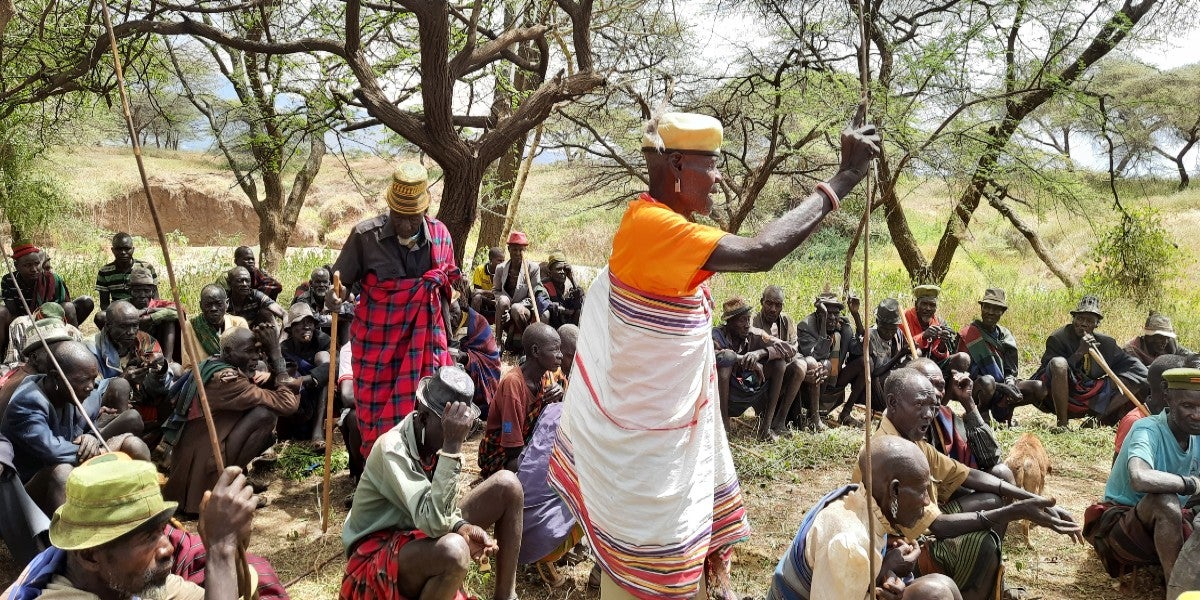From where I stand: “An awful accident saved me from female genital mutilation, and now I fight FGM in my community”
Date:
Dorcas Chelain, community mobilizer and activist working towards ending FGM in Uganda. She is one of the 5 per cent of women in Amudat district, Uganda, where 95 per cent of women today have undergone female genital mutilation (FGM). She managed to escape the procedure because of an awful mining accident that left her disabled. Today she works with UN Women and implementing partners to sensitize communities about the consequences of FGM and works to end this harmful practice.


I would join them from the age of 6-years old, we would dance and watch the cutting. I could have even died. I was young at that time, if I had gone for female genital mutilation (FGM) I might have bled and died.
That awful accident saved my life, had this not happened I would not be in the position I am in today. The moment my friends were cut, they stopped going to school and were prepared for marriage. As a young woman with disabilities, I was able to continue my education, having escaped from home, while my friends were unable.
In 2010, Uganda passed an act criminalizing FGM. Thinking of the time when it was not illegal….the girls come together as a village and watch the ceremony in the month of August. They sing and dance as the cutter - an older trained female ‘surgeon’ of 40 to 60 years old, performs the procedure. Since 2010, the practice has moved underground. To transform culture takes time, from 2010 when the law was passed up to now we are still facing FGM.
Girls are still experiencing FGM because of culture, we grew up this way. There was no clear reason why we had to be cut, we just did. The thinking was that when you grow up and you are cut, you become courageous, you are now clean, and you can talk in front of people.
We are trying to change the situation with UN Women’s help and engaging elders. When elders condemn something, and the community understands then the community will fear it and may decide to stop.

Most political leaders are afraid to speak on the issue because it means they may lose votes. This means elders have more of an influence on FGM. Aside from engaging elders, I believe we can end FGM by taking girls to school. In schools, girls are protected from the practice. The second way is to mobilize the cutters/surgeons and sensitize them on the law and its consequences. Cutters earn 70,000 Uganda shillings (the equivalent of 20 USD) per girl. The third way would be to mobilize all the girls in the community and speak on the dangers of FGM and highlight the referral pathways. The fourth point is on engaging men as men refuse to marry uncut women in the community.
When we talk about FGM, men must be sensitized to know that there are real dangers for childbirth and delivery for women who have undergone FGM. Women die giving birth, the child may not survive, and the family is left devastated.
When I speak to men, they listen. As a woman leader, I am limited in my influence, cannot attend “Akiriket” which is the parliament meeting of elders. However, when I speak to men in my community, they listen. If the “Akiriket” outlawed the practice of FGM, this would end the practice among the Pokot.
I want the community of Amudat to have a mindset change. Everyone has a role to play. Parents must refuse to allow their girls to undergo FGM. Most importantly, elders must condemn FGM in the Akiriket.
Dorcas, 40, is an Anti-FGM activist, a leader in her community for people with disabilities and was the Vice-Chairperson for the Amudat District local government in 2016. UN Women implementing partner Communication for Development Uganda (CDFU) has trained community elders and religious leaders on the use of power using the SASA! Methodology, a community mobilization approach developed to prevent violence against women and HIV, and how to use power positively. Dorcas is part of the CDFU-led drama group Natukuman Drama group.